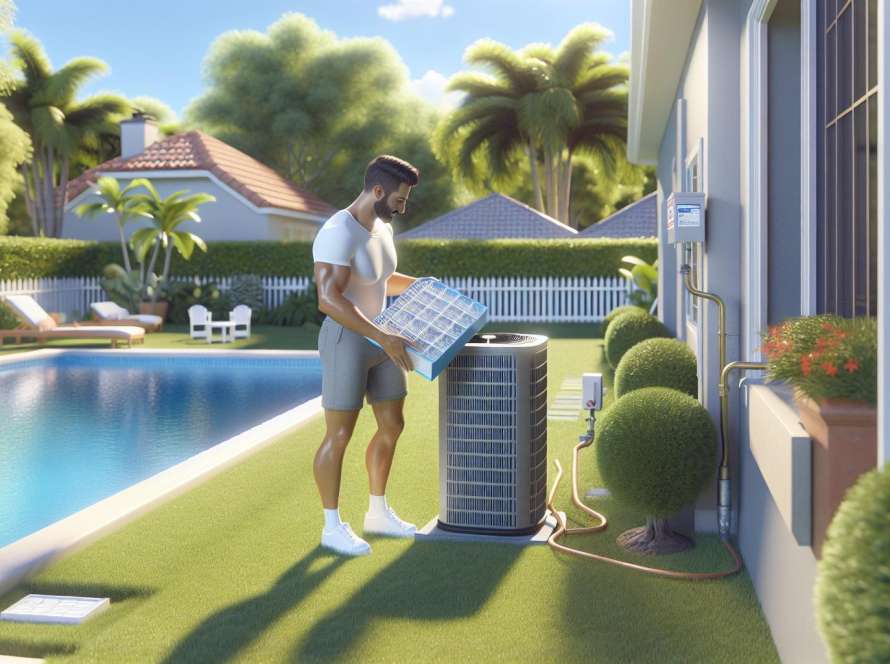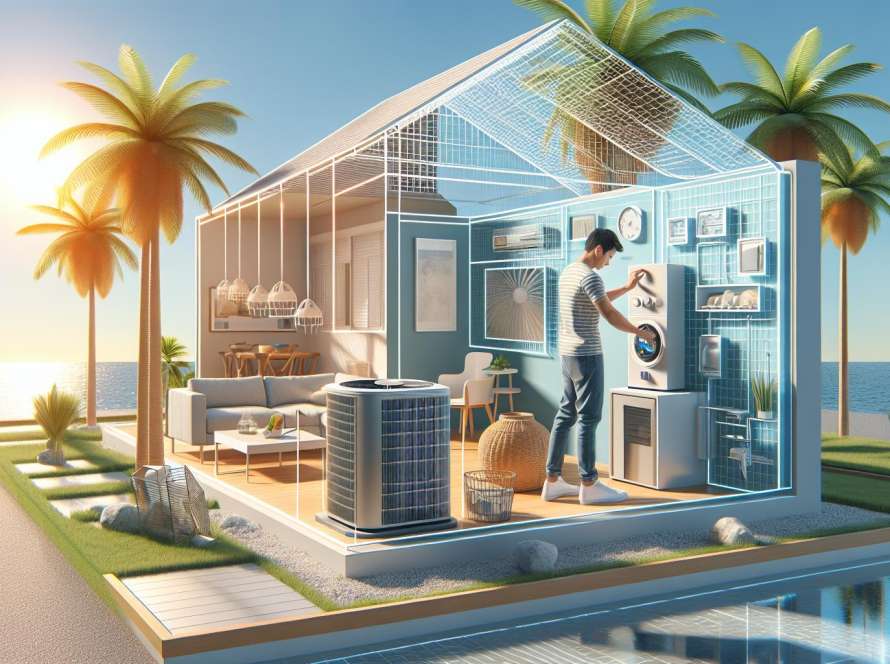So, you’re looking to keep cool and comfortable in those sticky, humid climates, huh? Well, you’re in the right place! When it comes to optimal AC performance in these conditions, there are a few key factors to consider. We all know how unbearable it can get when the humidity levels skyrocket and your AC just can’t seem to keep up. But fear not, because we’ve got the tips and tricks to help you make the most out of your cooling system, even in the most challenging of environments.
First things first, understanding the impact of humidity on your AC unit is crucial. High humidity not only makes the air feel warmer but also puts extra strain on your system, affecting its efficiency and overall performance. But don’t sweat it – we’ve got the lowdown on how you can optimize your AC to combat the moisture in the air and ensure it’s working at its best. So, sit back, relax, and let us guide you through the ins and outs of achieving optimal AC performance in those humid climates.
Understanding the Impact of Humidity on AC Performance
When it comes to humid climates, the impact on AC performance can be significant. Let’s dive into how humidity affects your air conditioning system:
For Beginners: The Basics of Humidity and AC
- Humidity makes it harder for sweat to evaporate, making us feel hotter.
- AC units remove moisture from the air to cool your space effectively.
- High humidity levels force the AC to work harder to achieve the same cooling effect.
- Ensure proper ventilation to help reduce humidity levels indoors.
For Intermediate Users: Optimizing AC Efficiency
- Use a dehumidifier alongside your AC to lessen the load on the system.
- Check and replace filters regularly to maintain optimal air quality and system efficiency.
- Consider installing a programmable thermostat to regulate temperatures based on humidity levels.
- Routine maintenance is key to keeping your AC performing efficiently in high humidity.
- Upgrade to an energy-efficient AC unit designed to tackle humidity and cooling effectively.
- Utilize smart home technology to monitor and adjust your AC settings remotely for maximum efficiency.
By understanding how humidity impacts your AC system and implementing these tailored strategies, you can ensure optimal performance even in the most humid climates.
Tips for Optimizing Your AC System in Humid Climates

For Beginners: Mastering the Basics
- Keep your home well-ventilated to help reduce humidity levels.
- Use a dehumidifier to maintain a comfortable indoor environment.
- Schedule regular maintenance checks to ensure your AC system is functioning efficiently.
For Intermediate Users: Enhancing Your AC Performance
- Replace air filters regularly to prevent dust buildup and maintain airflow.
- Consider installing a programmable thermostat for better temperature control.
- Utilize ceiling fans to improve air circulation and enhance cooling effects.
- Upgrade to an energy-efficient AC unit to save on energy costs in the long run.
- Integrate smart home technology for remote monitoring and control of your AC system.
- Invest in a whole-house dehumidifier for comprehensive humidity control.
| Key Points | Data/Statistics |
|---|---|
| Proper ventilation is crucial for AC efficiency | 70% of energy usage in typical homes goes to heating, cooling, and water heating. |
| Regular filter replacements improve AC performance | Replacing a dirty filter can lower energy consumption by 5-15%. |
| Programmable thermostats help save energy | Proper use of programmable thermostats can reduce energy costs by about 10%. |
| Upgrading to energy-efficient units is cost-effective | Modern energy-efficient AC units can reduce electricity bills by up to 20-50%. |
| Smart home technology enhances convenience | Smart thermostats can save users an average of $50-$180 annually on heating and cooling costs. |
Managing Moisture Levels for Improved AC Efficiency
When it comes to optimizing your AC system’s performance in humid climates, managing moisture levels is crucial. Here are actionable tips tailored to different experience levels:
For Beginners: Mastering the Basics
- Ventilation: Ensure proper airflow in your home to reduce humidity levels.
- Dehumidifiers: Consider using a dehumidifier to remove excess moisture from the air.
- Regular Maintenance: Schedule routine maintenance checks to keep your AC system running efficiently.
For Intermediate Users: Enhancing Your Approach
- Air Filter Replacements: Swap out air filters regularly to maintain good air quality and system efficiency.
- Programmable Thermostats: Invest in a programmable thermostat to control temperature and humidity levels effectively.
- Ceiling Fans: Use ceiling fans to help circulate air and improve overall comfort.
- Energy-Efficient AC Units: Upgrade to energy-efficient models to reduce energy consumption and enhance cooling efficiency.
- Smart Home Technology: Incorporate smart home technology for remote monitoring and control of your AC system.
- Whole-House Dehumidifiers: Consider installing a whole-house dehumidifier for comprehensive moisture control.
Remember, by effectively managing moisture levels, you can significantly boost your AC system’s efficiency and performance in humid climates.
Importance of Regular Maintenance in Humid Environments
Regular maintenance is crucial in ensuring optimal AC performance, especially in humid climates where systems work harder to combat moisture. Here’s a breakdown tailored to various experience levels:
For Beginners: Setting a Strong Foundation
- Change air filters every 1-3 months to maintain airflow efficiency.
- Inspect ductwork for leaks to prevent moisture buildup.
- Clean the outdoor unit to remove debris that can hinder airflow.
- Schedule annual professional maintenance to catch issues early.
For Intermediate Users: Enhancing System Efficiency
- Consider a smart thermostat for better humidity control and energy savings.
- Clean evaporator and condenser coils to improve cooling capacity.
- Check refrigerant levels and ensure they are at the manufacturer’s specifications.
- Invest in a UV light system to reduce mold and mildew growth in the system.
- Perform a load calculation to ensure the AC unit is sized correctly.
- Opt for bi-annual professional maintenance for thorough system inspections.
- Install a whole-house dehumidifier to regulate indoor humidity levels effectively.
- Consider duct cleaning to improve indoor air quality and system efficiency.
Regular maintenance not only extends the lifespan of your AC system but also boosts efficiency and enhances indoor comfort in humid environments. Stay proactive and address maintenance tasks promptly to enjoy a cool and comfortable space year-round.
Conclusion
Ensuring optimal AC performance in humid climates is essential for maintaining indoor comfort and efficiency. By following the recommended maintenance tips for both beginners and intermediate users, we can prolong the lifespan of our AC systems and improve overall performance. Investing in smart technology, regular inspections, and professional maintenance will not only enhance the efficiency of our units but also create a more comfortable living environment. By incorporating these practices into our routine, we can enjoy cool, dry air throughout the year, even in the most humid conditions. Remember, a well-maintained AC system is the key to a comfortable and energy-efficient home in any climate.

